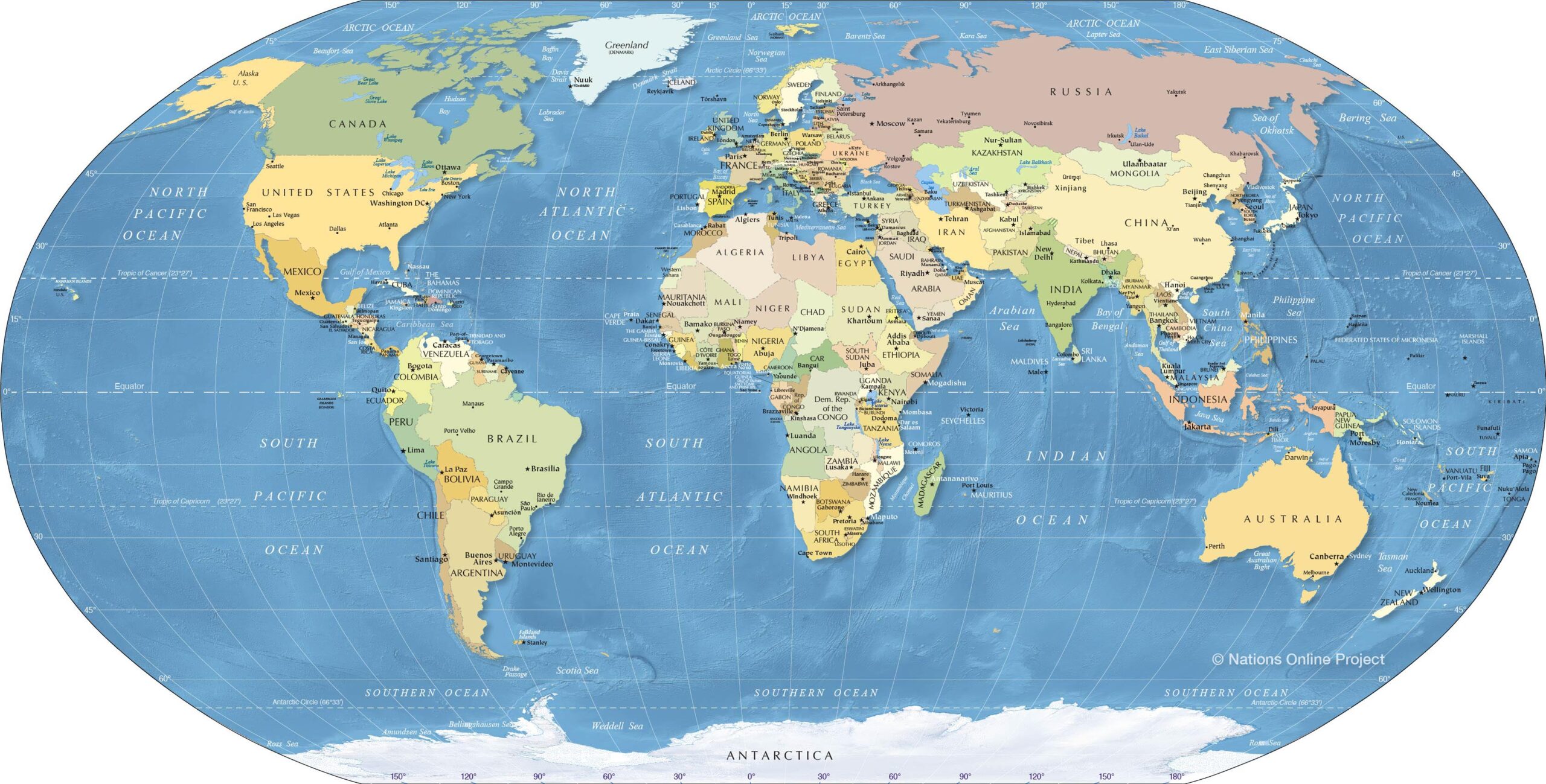Top 15 Mind-Boggling Paradoxes
The world is full of conundrums, and we as humans have been apparently given the brain to solve them. However, some of these puzzles are too complex for us to solve. We are unable to get a logical conclusion to the premises of these. They often result in contradictory conclusions. And are commonly termed Paradoxes. Paradoxes often give you a headache in the process of analysing them. However, there is no harm in exercising your brain a tad bit.
So here’s a list of 15 paradoxes that will leave you confounded:-
15. The Grandfather’s Paradox.
giphy (2)
How can you kill your ancestor and still exist? This paradox was put forward by Rene Barjavel, a french author. Let us imagine that Sana has a grandfather. Now she travels back in time and kills him before he marries her grandmother. And she decides to return but is unable to do so, because she has no parents and she no longer exists. Some say that she might exist in a parallel universe but without history. She could have erased all of her memories after shooting her grandpa. What do you think?
14. The Ontological Paradox.
giphy (11).gif
Can you make something from the future in the present?
In a way it is the opposite of the Grandfather’s Paradox. Suppose an engineer in the present receives a notebook from the future containing the methods of constructing a machine. He constructs the machine which he knows he did not invent as such. The origin of the object, therefore cannot be attributed to the engineer since he didn’t have the knowledge at that time. The invention cannot even be attributed to the person who owned the notebook because the machine has already been invented by the time he or she is born.
13. The Crocodile’s Dilemma.
giphy (1)
Be careful with your guesses! Suppose a crocodile steals a kid, and tells the mother that if she is correctly able to guess what the crocodile would do to her child, it would gladly return the child. The mother says that the crocodile will not return the child. The dilemma then faced by the crocodile is called crocodile’s dilemma.
If she would have said that the crocodile would return the child, then there is no such paradox. The crocodile can or cannot return the child depending on the right choice. If, however, the mother says that the crocodile will not return the child. There is a paradoxical situation as the crocodile cannot return the child even if the mother’s choice is correct or false!
12. The prisoner’s dilemma.
tumblr_mu9udrJxBp1sczcnno1_500.gif
Doing what’s not best for us? Suppose person A and person B have both committed a theft and are taken into questioning. They are both aware of the punishment their crime entails that is five years. However, they are both told separately that if one of them confesses then they get only one year and the other would get ten years of imprisonment. If however, none of them confess, they would both be set free since the authorities have no such evidence to imprison either.
The paradox is that they end up confessing because of self-interest instead of remaining quite and being better off. However, on closer analysis we find the root cause. The reason that they choose to confess is that they are unaware of what the other person will pick. And they are better of confessing given the other person confesses or remains silent.
11. The Paradox of thrift.
giphy.gif
Spending better than saving? According to the paradox of the thrifty, individuals try to save more during a recession, which further lowers economic growth. Keynes explained this on the basis of low aggregate demand. If individuals spends less, then the total aggregate demand will fall, thereby lowering economic growth. This however, has been critiqued by various economists. To their understanding, saving in banks would help banks lend more money and thus raise employment and the rate of economic growth.
10. Buridan’s Ass Paradox.
giphy (3)
That moment when you don’t know what to do. This occurs when you are given two choices and you may do both but doing either will kill you. That is to say you have free will but you don’t really have it.
Suppose an ass is placed midway between a pile of hay and a bucket of water. The ass is both hungry and thirsty and in a severe way too. If it chooses to go towards the pile of hay, it will die of thirst and if it chooses to go towards the bucket of water, it will die of hunger. In reality it has no choice! This paradox was meant to satirize moral determinism.
9. The Dichotomy Paradox.
giphy (12).gif
Say that you are going from place A to place B. To reach B you must first reach midway between A and B, say AB. Then you need to reach midway between AB and B, say D. You are then required to cover half the distance between D and B. This goes on infinitely. You walk a half first. You then cover another 1/4th and then 1/8th and then 1/16th and so on. So, however small the distance between two places is, it can always be halved. Therefore, you can never reach your destination.
8. Barber’s Paradox.
giphy (4).gif
“In a town where all the men are clean-shaven, there is a barber who shaves every man if and only if that man doesn’t shave himself. ” This of course is said assuming that the barber is a male.
Let’s take it apart word by word. The barber shaves every man who doesn’t shave himself. So those who don’t shave themselves go to the barber. Those who shave themselves do not go to the barber. The barber has to either shave himself or be shaved by another. He cannot go to the barber(himself) because he shaves himself. And he must be shaved by himself if he doesn’t shave himself.
Can the barber really exist in such a town? I doubt it if he has to be clean shaven.
7. Theseus’ Paradox.
giphy (9)
If you gradually replace all parts of a ship, does it remain the same ship? The same applies to any other object under the assumption that all parts are replaceable. Imagine that you own a ship or a car. One by one you damage its parts. You replace the part one at a time. Over time, there are no parts of the car you haven’t replaced. Does it mean that you have the same car or is it another car? This actually happened to the ship of Theseus! So when did it become okay for us not to call it the ship of Theseus?
6. Boy or Girl Paradox.
giphy (10).gif
A couple has two children. At least one of them is a boy. What is the probability that both of them are boys? At first the answer seems pretty easy. Intelligence makes us say that the probability of having a boy or a girl is half. So both of them being boys should be 1/4. But in reality it is not so. We have the set as { (girl,boy), (boy,girl), (girl,girl), (boy,boy) }. In this case we already know that at least one is a boy, therefore the number of total events is three. The set (girl,girl) cannot be taken into consideration. Then the only way in which the second one can be a boy is one. Therefore, the probability is 1/3 for this paradox. The situation is paradoxical because even through logical explanations it is difficult for us to reach the correct conclusion.
5. Socratic Paradox.
giphy (5)
Socrates according to Plato said, “I know that I know nothing.” How did he know? The paradox here is that if he knows nothing, then how does he know that he knows nothing.
4. Raven’s Paradox.
giphy (6)
Originally known as the paradox of confirmation. The paradox was initially explained with the help of ravens by Carl Hempel the philoshopher. The paradox tells us about of how human beings confirm. We simple look at objects at an instance and then confirm. If we see a raven that is black and then say we make a hyphothesis saying that all ravens are black. We can test this hyphothesis by looking around us. We can observe this by looking at the objects lying at home. We see that they are non-black and are not ravens, therefore indicating that ravens are black. Then we can also observe other birds that are non-black and are not ravens amounting to the same conclusion. So does this imply that observing anything that is non-black gives more weight to our belief that ravens are indeed black?
3. The Twin Paradox.
Pglulc
What if your leave your twin and return only to see that you have aged lesser than your twin. This paradox is based upon Albert Einstein’s theory of relativity.
Let’s say we have the twins Phoebe and Ursula. Phoebe decides to go to space and Ursula stays back on earth slightly annoyed with Phoebe’s decision. When Phoebe comes back she finds that she has hardly aged whereas Ursula is much older than she. Einstein theory of relativity is used to explain this. According to the theory, the faster you move through space the slower you move through time!
2. Liar Paradox
giphy (7)
“The next statement is true. The previous statement is false.” If we consider the first statement is true then then the second one should be true which implies that the first one is false that the second one is true which means it is false, then again the first sentence should be true and the cycle goes on.
1. Catch -22.
giphy (8)
You may do it but you may not! It is a situation wherein a person has no option even after having been given an option because of the existence of interdependent options. Confusing right!
The paradox is derived from Joseph Heller’s book, titled Catch-22. According to the book anyone who was declared crazy could be taken off duty. But “anyone who wishes to get out of combat duty isn’t really crazy.” So you are really in a paradoxical situation from where there is no escape.


